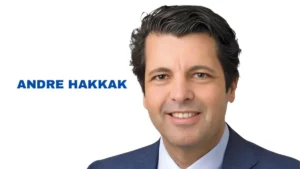The Eurovision Song Contest, renowned for its glittering performances and cultural significance, is not immune to controversy. In the midst of the excitement surrounding the 2024 contest, an unexpected incident unfolded backstage, casting a shadow over one of the contestants, Joost Klein, a Dutch artist. This article delves into the details of the incident, explores Joost Klein’s background, examines the repercussions of his disqualification, and reflects on the broader implications for Eurovision.
Joost Klein: An Introduction
Joost Klein, a talented Dutch artist, emerged as a formidable contender in the 2024 Eurovision Song Contest. Born with a passion for music, Klein’s journey to Eurovision was deeply personal. His song, “Europapa,” a pro-European techno anthem, held a special significance as it was dedicated to his late father, whom he lost to cancer at a tender age of 12. Promising his father that he would one day grace the Eurovision stage, Klein’s aspirations seemed within reach as he became one of the favorites to win the contest.
The Eurovision Incident: Unraveling the Events
The unfolding of events leading to Joost Klein’s disqualification was unexpected and tumultuous. Amidst the preparations for the contest, an allegation of intimidation surfaced, implicating Klein. A female member of the production crew reported an incident to the Swedish police, alleging intimidation by Klein backstage. The Dutch artist vehemently denied any physical altercation, stating that he had repeatedly expressed his discomfort with being filmed and that he did not touch the camerawoman in question.
Dutch broadcaster Avrotros, representing Klein, contested the disqualification, labeling it as “disproportionate.” They highlighted the breach of agreements regarding filming protocols and emphasized Klein’s nonviolent intentions during the incident. Despite attempts to resolve the situation, the decision to disqualify Klein was upheld, citing a breach of contest rules and a commitment to maintaining a safe working environment for all staff.
Repercussions and Reactions
Joost Klein’s disqualification sent shockwaves through the Eurovision community. Happening just hours before the grand final, it marked an unprecedented twist in the contest’s history. Although disqualifications have occurred before, the timing made this one particularly dramatic. The absence of a frontrunner like Klein created a void, shifting the dynamics of the final and changing the course of the competition.
The reactions to Klein’s disqualification varied, with supporters expressing disappointment and disbelief at the turn of events. Dutch viewers, however, were still allowed to vote, and the Dutch jury result remained valid, albeit without Klein’s performance in the final. The disqualification also sparked discussions around the enforcement of contest rules, participant conduct, and the role of the European Broadcasting Union (EBU) in ensuring the integrity of the competition.
Broader Implications for Eurovision
Joost Klein’s disqualification brought to light broader implications for Eurovision as an institution. The incident raised questions about the management of backstage dynamics, the enforcement of participant conduct codes, and the role of national broadcasters in representing their respective countries. Additionally, it underscored the delicate balance between artistic expression and adherence to contest regulations, highlighting the need for clear communication and mutual respect among all stakeholders involved.

Furthermore, the incident shed light on the scrutiny and pressures faced by contestants on the Eurovision stage. With heightened tensions surrounding geopolitical issues and societal debates, the Eurovision Song Contest serves as both a platform for cultural exchange and a reflection of contemporary challenges. As such, maintaining a safe and inclusive environment for all participants remains paramount, ensuring that the spirit of Eurovision endures amidst unforeseen adversities.
Conclusion
Joost Klein’s disqualification from the 2024 Eurovision Song Contest serves as a poignant reminder of the complexities inherent in one of the world’s most celebrated musical events. Amidst the glitz and glamour of Eurovision, moments of controversy and conflict emerge, testing the resilience of participants and organizers alike. As the Eurovision community reflects on the events surrounding Klein’s disqualification, it reaffirms the enduring spirit of unity, diversity, and creativity that defines the essence of Eurovision. In the face of adversity, the show must go on, celebrating the power of music to transcend boundaries and unite audiences around the world.








